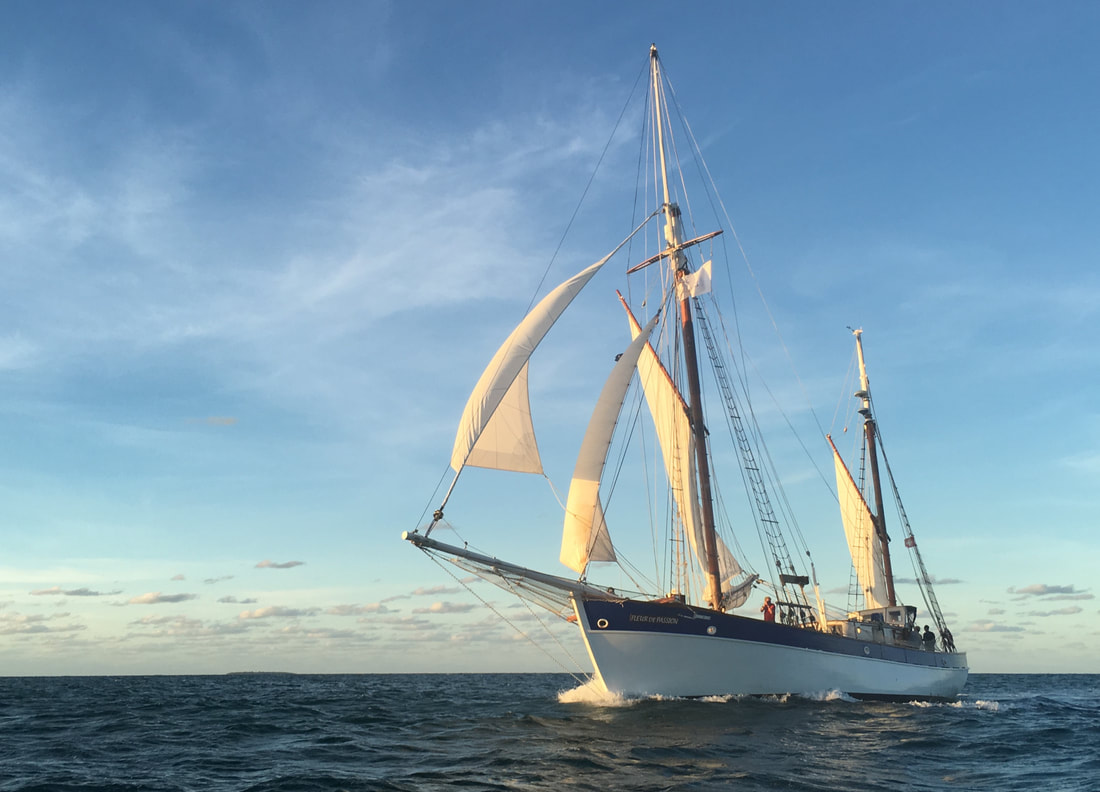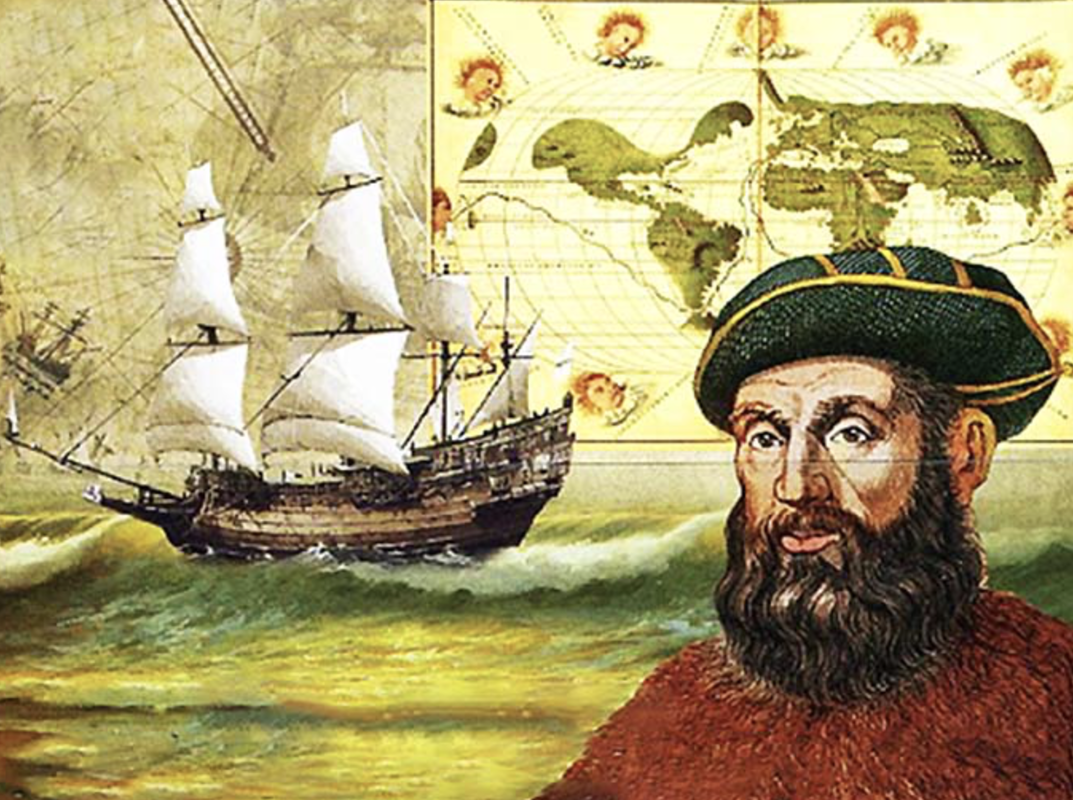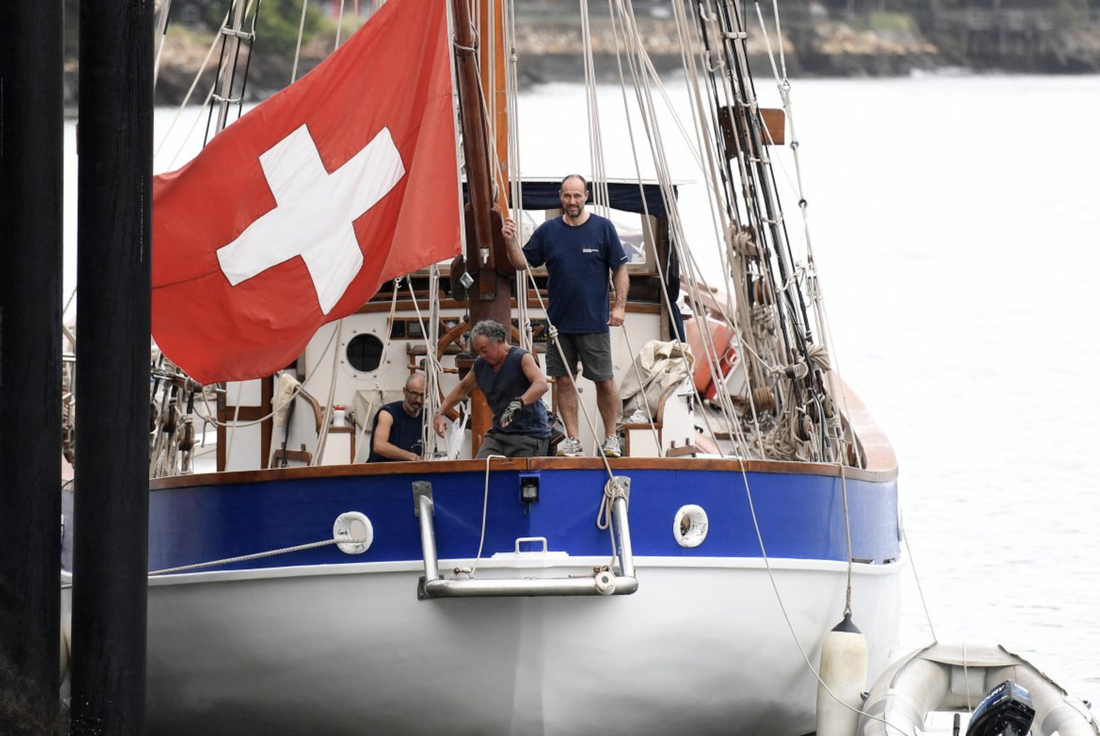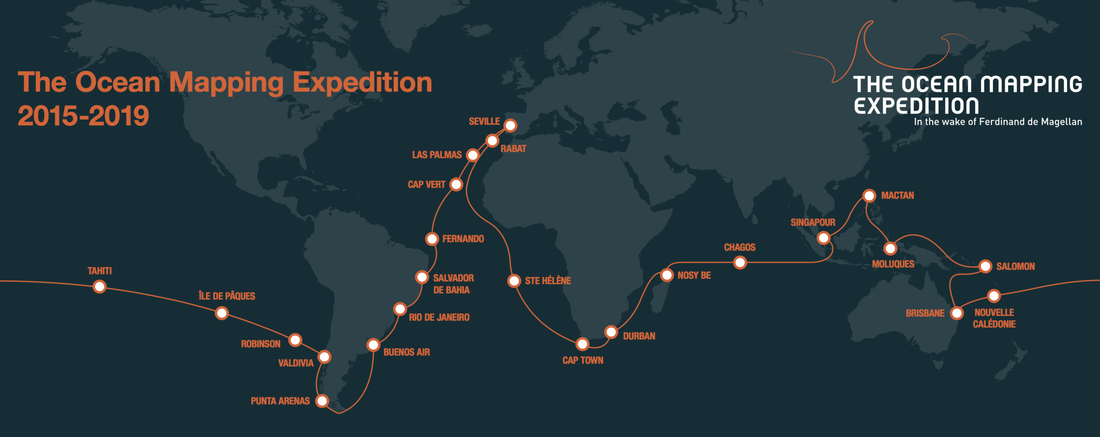|
3/15/2018 Swiss Sailboat Fleur de Passion Arrives in Singapore as Part of Ocean Mapping ExpeditionRead Now By Christine Amour-Levar The 33m-long Swiss research vessel Fleur de Passion, an old German World War II navy minesweeper which has been disarmed and redesigned for scientific research, reached Singapore on March 13, 2018 and docked at the Republic of Singapore Yacht Club. The vessel and its crew are on a four-year Ocean Mapping Expedition around the world, retracing the footsteps of Ferdinand Magellan, measuring the impact of humans on the oceans and raising awareness for sustainable development - a project led by by Geneva-based Fondation Pacifique. Magellan was a Portuguese explorer who set sail from Seville, Spain in 1519 and embarked on a voyage, which became the first recorded circumnavigation of the Earth. His arrival in Cebu, Philippines in 1521, would eventually lead to the Spanish colonisation of the Philippine Islands. Like Magellan, the research team set sail from Seville, Spain in April 2015 and hopes complete the journey by August 2019. Working mainly with the authorities of the Swiss City-State of Geneva, the Ocean Mapping Expedition offers various educational and cultural programmes to the public. Some of the scientific activities featured on the ship included the following: 20,000 Sounds Under the Seas The 20,000 Sounds Under the Seas programme in partnership with biologist and engineer Dr Michel André records the sounds of the sea to assess noise pollution produced by human activity. "Marine noise pollution is recognized today as one of the greatest disrupters of marine ecosystems that threaten the natural balance of the oceans", said Dr André. "This pollution is little known to the general public because it is invisible and inaudible, at least for human ears,” he explained. Micromégas The Micromégas programme with the Federal Polytechnic University of Lausanne involves taking seawater samples at the ocean surface to evaluate the level of plastic pollution. The expedition also encourages education initiatives such as The Youth at Sea educational programme, which invites young people to stay on-board Fleur de Passion for up to two months to experience life at sea as full-time crew members. Over 34 teenagers have participated in the programme since 2015. Magellan’s Mirror As part of an arts initiative, the ship also offers the Magellan’s Mirror cultural programme which invites cartoonists from Switzerland and other parts of the world to come aboard the ship and create illustrations to explain the expedition's mission and its programmes to a wider audience. The Winds of Change The Winds of Change programme, in partnership with the University of Geneva, launched in December 2017 in Mactan, Philippines. It monitors the methane and carbon dioxide levels in the oceans in order to better understand global warming. "Methane and carbon dioxide concentrations clearly rise near cities, approaching islands and shallow seas, in other words in areas that are influenced by human activities or experience higher algal growth", said Prof. Daniel McGinnis, Head of the Aquatic Physics Group at the University of Geneva and responsible of the programme on the expedition. Established in 2007, the Fondation Pacifique has been carrying out educational, cultural, and scientific expeditions in order to help understand the human impact on the ocean. Fleur de Passion’s voyage can be tracked on their website and updates can found on their Facebook page and YouTube channel. The sailboat departs Singapore on March 25, 2018 before heading to Jakarta, Madagascar, Mozambique and South Africa, where she is expected to arrive in Durban then Cape Town by the end of the year. 5/30/2018 01:04:20 pm
Ocean mapping must have been a cool activity. The great explorers won't be regarded as "great explorers" had these not been "great"Back when there's no google earth yet, I wonder how this was done. It must be really impossible to have an accurate idea of how the world is designed. The ancient explorers must have used magical or even alien technology just to get by. The artists must have not been relying on imagination alone. Comments are closed.
|
Details
AuthorChristine Amour-Levar Archives
December 2023
Categories
All
|




 RSS Feed
RSS Feed